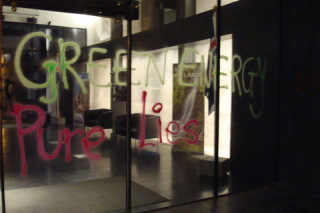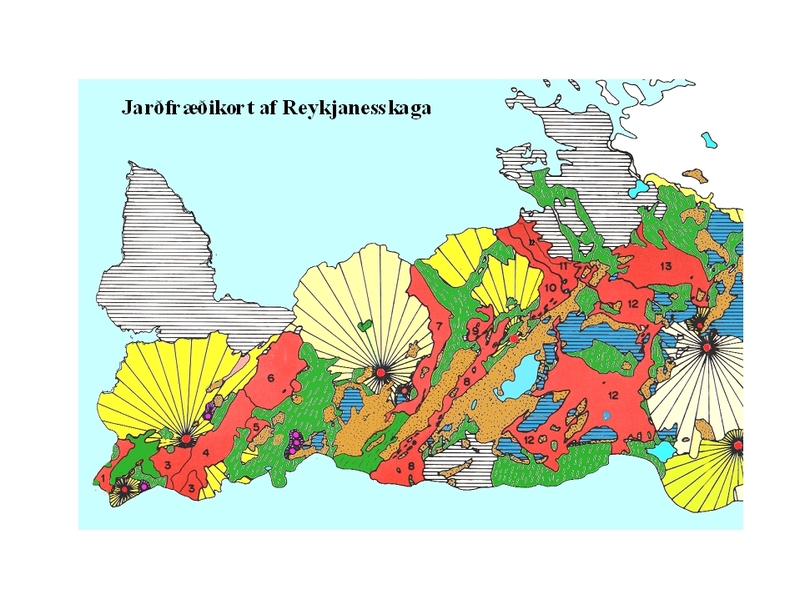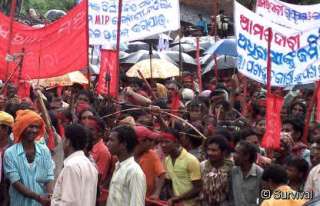As Greenland awakes from over 700 years of colonisation and heavy subsidisation by Denmark, it’s home rule government are promoting the development of huge hydro-power for aluminium smelters, and all the country’s other mineral and energy resources as a desperate measure to sustain their economy. The language of fear and imminent economic collapse used in the Prime Minister’s plan (below) is strongly reminiscent of the pro heavy-industry strategy in Iceland in the run up to the Kárahnjúkar dam, and right up to today.
The article attempts to justify aluminium production and other energy intensive extractive industries, claiming that using Greenland’s ‘green’ hydro energy will prevent ‘dirty’ emissions for the inevitable production of aluminium elsewhere. This is certainly the take of Alcoa who are ever keen to avoid carbon taxes, and claim that:
‘We have before us a wonderful opportunity to deliver mutual benefit to the people of Greenland and to Alcoa as we continue to work toward our common objective of building a world-class, sustainable aluminum smelter, powered by renewable hydroelectric energy in Greenland.’
The experience of Icelandic mega-hydro, as well as numerous
studies have revealed this argument to be nothing but ‘greenwash’- a selling point for Alcoa, while carbon emissions, fluoride pollution, indigenous destruction, and weapons manufacture associated with aluminium production continue to rise unabated.
Plans for an aluminium smelter in Greenland have been reported since 2007, originally proposed by Norsk Hydro. Alcoa quickly stepped in and a Memorandum of Understanding was signed in May 2007 for a smelter in the town of Nuuk, Sisimiut or Maniitsoq. The proposed smelter will begin at 350,000 tonnes (slightly larger than the enormous Fjardaal in Iceland) and will require 650 MW of energy from 2 dams, connected to the smelter by 240 km of powerlines. Public consultations are currently in progress with the next round in January 2010, with plans to have the smelter online by 2016.
In 2008 a contact in Greenland reported that most people there are in favour of the project, and with the urgent need for financial independence as they break away from Danish rule, this may well be the case. Greenland is geographically and politically isolated and lacks even the level of critique and information which Icelanders had in the run up to Karahnjukar, let alone the support of large NGO’s for the tiny environmental group who are trying to single-handedly address the many issues with the smelters and other developments there.
Read More


 Last Saturday, November 21st, Jóhanna Sigurðardóttir, Iceland’s prime minister and the head of Samfylkingin (social democratic populist party), said that she is completely sure that all hindrances that could possibly stand in the way of the construction of Suðvesturlína (electricity lines) will be removed as soon as possible. Suðvesturlína is supposed to transport energy from the Hellisheiði geothermal powerplant (south of Reykjavík) and other energy sources to the Reykjanes peninsula, e.g. to run Century Aluminum’s new 360 ton smelter, which is currently being built in Helguvík.
Last Saturday, November 21st, Jóhanna Sigurðardóttir, Iceland’s prime minister and the head of Samfylkingin (social democratic populist party), said that she is completely sure that all hindrances that could possibly stand in the way of the construction of Suðvesturlína (electricity lines) will be removed as soon as possible. Suðvesturlína is supposed to transport energy from the Hellisheiði geothermal powerplant (south of Reykjavík) and other energy sources to the Reykjanes peninsula, e.g. to run Century Aluminum’s new 360 ton smelter, which is currently being built in Helguvík.
